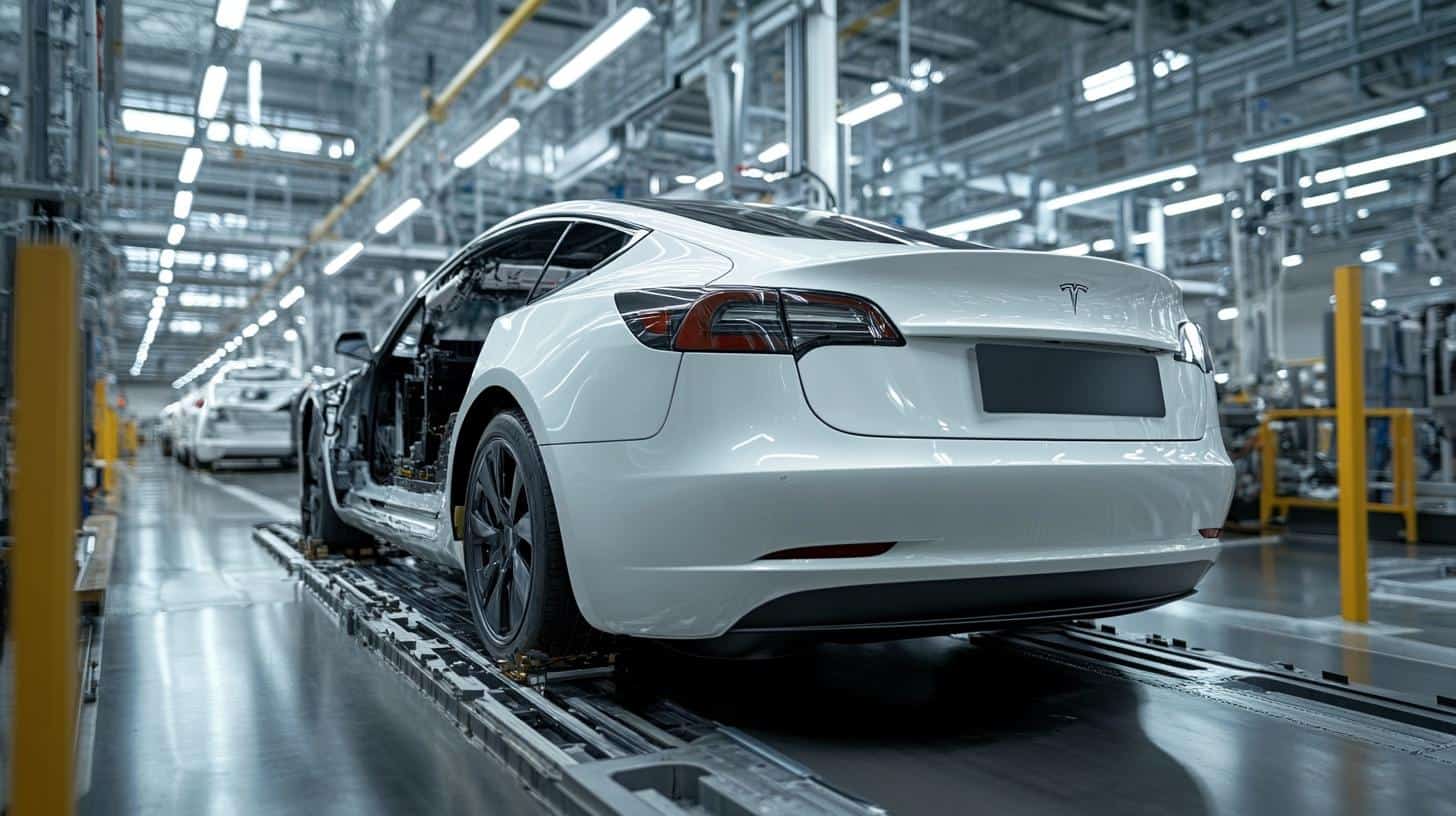Ford and LG’s Strategic Move
Under a newly unveiled agreement, Ford and LG are set to transform their electric vehicle battery production landscape. By 2025, the production of batteries for the Ford Mustang Mach-E will transition from Poland to Ford’s facility in Michigan. This strategic shift is primarily driven by lucrative tax incentives available in the United States.
To leverage favorable market dynamics, Ford aims to take full advantage of the financial benefits offered in the U.S. Meanwhile, LG plans to focus on the European market through a significant battery supply arrangement. Starting in 2026, LG will deliver 109 GWh of batteries to Ford for their electric commercial vans, capitalizing on European incentives.
LG’s Ambitious Plans
LG Energy Solution’s CEO emphasized the company’s proven expertise in delivering advanced battery technologies that meet the demands of extreme environments. By harnessing local production capabilities, LG is poised to secure its leadership in the European market and offer robust battery solutions tailored to diverse customer needs.
A Broader Industry Trend
Ford isn’t alone in shifting battery production. Automakers globally are realigning their strategies to qualify for substantial Clean Vehicle Tax Credits in the U.S. LG Energy announced a separate $3 billion investment in its Michigan facility to supply Toyota with lithium batteries for future electric vehicles.
In tandem, Ford has also partnered with SK On to manufacture batteries for the upcoming E-Transit commercial van and F-150 Lightning, slated to commence in Kentucky by mid-2025. This broader industry trend underscores a pivotal shift towards maximizing strategic advantages in EV supply chain localization.
Electric Vehicle Revolution: The Untold Impact on Communities and Economies
The electric vehicle (EV) industry is undergoing a seismic shift, with strategic partnerships like the one between Ford and LG signalling a new era in battery production. While previous discussions highlighted the corporate strategies of Ford and LG, it’s imperative to delve deeper into how such moves affect communities, economies, and the global landscape of EV technology.
Community and Employment Effects
The decision to shift battery production to Michigan promises to invigorate the local economy. Thousands of jobs are expected to be created, offering a much-needed boost to a region historically reliant on the automotive industry. Beyond direct employment, local businesses stand to benefit from the influx of workers and the ancillary demand for services.
However, the shift also raises concerns about regions losing production facilities. For Poland, Ford’s decision marks a potential economic drawback as jobs and investments could dwindle. The move exemplifies a global trend where corporations prioritize regions offering the most tax incentives, potentially leaving other areas disadvantaged.
Economic Implications
The strategic move by Ford and LG is a clear response to favorable tax policies in the U.S., designed to bolster domestic manufacturing. Such policies could lead to a manufacturing renaissance in the U.S., reinforcing the country’s supply chain resilience. Yet, this raises questions about the sustainability of these incentives and their long-term economic impact. Can local economies maintain such growth once incentives expire, or will they face a sharp decline?
Technological Advancements
LG’s focus on advanced battery technology could accelerate innovation in the EV space. Their push into the European market with robust battery solutions tailored for extreme environments showcases the company’s commitment to leadership in battery technology. This aligns with a broader industry trend where emerging technologies are continually reshaping the market landscape.
Environmental Concerns
While the shift towards electric vehicles is hailed as a step towards reduced carbon emissions, the environmental impact of increased battery production cannot be ignored. The processes involved in mining and manufacturing battery components need to be carefully managed to avoid negative impacts, necessitating a balanced approach where environmental and economic goals align.
Globalization vs. Localization
As companies like Ford and other automakers realign their production strategies, the balance between globalization and localization becomes a focal point. The current wave towards localization harnesses governmental incentives but underscores a tension with globalization principles. How can countries collaborate to attain mutual benefits in the EV sector while safeguarding local interests?
Advantages and Disadvantages
The advantages of these shifts include job creation, technological advancements, and strengthened supply chains. However, they pose disadvantages such as regional economic disparities, potential environmental concerns, and reliance on policy incentives.
Interesting Questions
How sustainable are government incentives in driving long-term industrial growth? Can regions losing facilities pivot to other industries successfully? How will environmental policies shape the future of battery production?
For a deeper understanding of the evolving EV landscape, visit Ford and LG to explore their latest initiatives and technological innovations. These maneuvers in the EV industry are not just about corporate strategies—they embody changes impacting communities, economies, and technological trajectories worldwide.
The article has been updated: 2024-11-08 19:04
Here are some suggested related links:
1. Tesla – The leading electric vehicle manufacturer known for its innovations in EV battery technology and production.
2. BMW – A renowned automotive manufacturer that is investing heavily in electric vehicles and battery production to support sustainable transportation.
3. LG Chem – A major player in the battery manufacturing industry, providing technologies for electric vehicles and energy storage systems.
4. CATL – A global leader in lithium-ion battery development and production, supplying batteries for various electric vehicle manufacturers.
5. Nissan – An automotive pioneer in electric vehicles that is continuously developing new battery technologies to enhance EV performance.
6. Ford – An automotive giant making significant strides in EV production and battery technology as part of its transition to electric vehicles.
7. Volkswagen – A major automotive brand that is shifting its focus towards electric mobility and battery innovation in its upcoming models.
8. IonQ – A tech company focusing on quantum computing that provides insights into future technologies, including advancements in battery production.
9. Lithium Americas – A company engaged in lithium mining, an essential component of EV batteries, playing a key role in supplying battery materials.
10. U.S. Department of Energy – The government department that oversees initiatives related to energy efficiency, renewable energy, and battery technology advancements.
The article has been updated: 2024-11-09 09:12
What are the key changes in EV battery production that consumers should be aware of?
As the electric vehicle (EV) market continues to grow, significant shifts in battery production are taking place. Key changes include the adoption of new materials that enhance battery efficiency and reduce costs, advancements in recycling technologies to reclaim valuable metals, and an increasing focus on sustainability in sourcing raw materials. Consumers should be aware that these developments may lead to longer battery life, reduced prices for EVs over time, and a lower environmental impact for battery manufacturing processes. Additionally, some manufacturers are beginning to localize production to minimize supply chain risks, which could improve availability of EVs in various markets.







